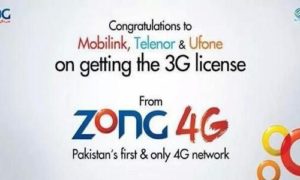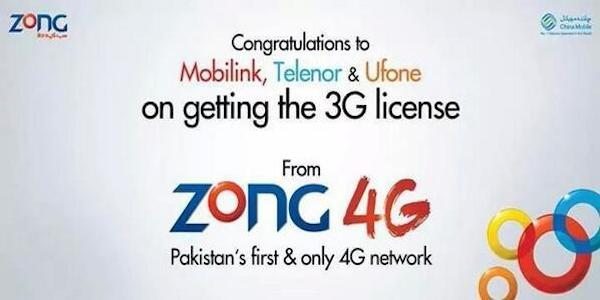Drumroll please! The Pakistan Telecommunication Authority (PTA) has successfully completed the bidding and auction process for 3G/4G licenses and the results are in. The wait is over, the skeptics have been silenced and anticipation is rife. When will 3G or 4G arrive on your phone?
It was expected that four out of five of Pakistan’s telecom companies would be placing their bids for the auction, which was completed on April 23rd. Mobilink, Telenor, Zong and Ufone were all expected to participate, while it was understood that Warid would be declining to participate at this time.
The entrants were as expected, and no new players made any bids. Mobilink, Telenor and Ufone all received 3G licenses, and in a surprising turn of events, Zong is the only company that emerged with both 3G and 4G licenses.
It has been reported that Ufone did bid for 4G, but did not qualify for this service, as the band it received for 3G was insufficient for it to also acquire 4G services. In the 3G category, Mobilink and Zong received 10Mhz, while Ufone and Telenor both bid at base price and ended up with 5Mhz.
Money Raised
For acquiring both 3G and 4G licenses, Zong bid the highest with a total amount of $516. 92 million. The government raised a total of $1.11 billion, which was higher than the government had expected to earn, given that the remaining 4G license can still bring in more money.
This was a marked difference from what had been expected following the unpromising showing in the first round of bids. It was initially thought that no one would be bidding for 4G and that because not all five mobile telecom operators were participating, they would only be able to raise an estimated $863 million. The situation seemed so bleak for the government at the time that the Express Tribune reported an official saying: “The disappointing bids are deepening the budget hole by almost $1.7 billion and are such a big hit the finance minister is ready to postpone the whole auction process.”
Despite this, the process moved along smoothly and raised Rs. 111 billion, with the government expecting that the second 4G license could possibly raise a further Rs. 50 billion later on.
Warid’s Unexpected Move
In a surprising turn of events it was revealed that Warid, who had indicated it would not be participating in the auction, may well be coming out with 4G services some time this year. Apparently, Warid had planned to announce their intention to do this the same day the auction was held, but did not have the final go-ahead from the PTA to provide this service.
It seems while everyone has been busy speculating about the auction, or preparing their bids for the licenses, Warid has been working behind the scenes to establish the appropriate permissions it needs to run 4G services on its current network. Warid has a technology neutral license, in addition to claiming to have a small enough user base that it can manage to support the new service on its existing network.
So it seems all Warid really needs at this point is a permit from the government, and according to a source at the Express Tribune, “The PTA’s response has been encouraging and it’s expected that soon after due approvals from the former, the company will be testing 4G services on its network most likely by the end of May.”
Expected 4G Services
If Warid is able to have its 4G services up and running by the end of May, it may well be ahead of the pack in terms of offering services quickly. Zong is expected to have its new services available later in the year, by October. It has also been reported that Zong will be investing up to $1 billion to upgrade its infrastructure and network to accommodate the new services.
Zong is known for offering competitive rates, and it has been confirmed that “Zong will offer 3Gor 4G services simultaneously for its both prepaid and postpaid users”.
The Daily Times also quoted Sikandar Naqi saying that “The company has started testing 3G and 4G services in some areas of Lahore and Karachi from various towers while they would be rolled out completely in major cities of Pakistan by the end of October 2014”.


